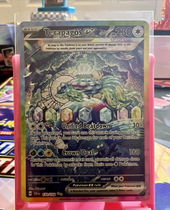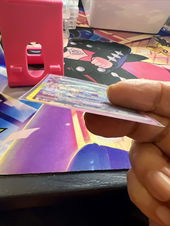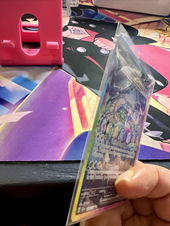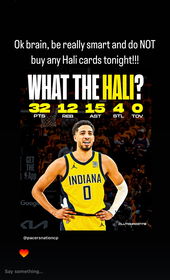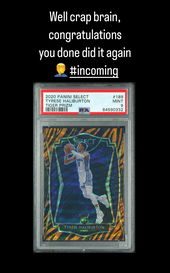FOMO
1
Posts
0
Followers
FOMO
1
Posts
0
Followers
In
collectorsmd
Oct 31 2025
Published October 30, 2025 | By Brandon H, Collectors MD Community Member
Collecting sports cards has always been a thrilling hobby. The excitement of discovering a rare rookie card, the anticipation of a new release, and the simple joy of organizing a collection all bring collectors together. But as the hobby’s popularity has exploded, so has the pressure to keep up—and with it, the ever-present fear of missing out (FOMO).
When Topps dropped its first licensed basketball product in sixteen years, the internet lit up. YouTube channels streamed endless reactions, breakers filled every slot in minutes, and Topps itself leaned into the frenzy—posting highlights of massive pulls to keep the hype machine running. Every clip whispered the same message: don’t miss this one. It’s a textbook example of how the industry capitalizes on FOMO.
When it comes to collecting, FOMO can feel relentless. Every scroll through social media shows someone hitting big—flipping a grail, buying the perfect card before the price spike, or pulling a monster live on stream. It’s easy to believe that if you don’t act now, you’ll fall behind. But that pressure can quietly erode what made collecting fun in the first place.
FOMO doesn’t just drain wallets—it distorts purpose. It drives impulse buys, overspending, and regretful trades that don’t align with your true collecting goals. What starts as excitement can quickly turn into stress, anxiety, and even compulsion.
Here are a few ways to take back control when the urge to chase hits:
Define Your Purpose. Ask yourself why you collect. Is it nostalgia? The art? The connection to the game? When you know your “why”, the noise loses its grip.
Set Boundaries. Decide on a clear budget and stick to it. Letting one opportunity pass is better than letting debt take root.
Stay Informed. Learn the market, but don’t let it dictate your joy. Knowledge reduces panic—and panic fuels FOMO.
Build Community. Engage with other intentional collectors who value connection over competition. Real community helps turn envy into encouragement.
Pause Before You Rip. Take a breath. Walk away from the cart. Ask: Am I doing this because I want to—or because I’m afraid not to?
FOMO isn’t the enemy—it’s a signal. It tells us we care. But when the fear of missing out starts replacing the joy of discovery, it’s time to slow down. Collecting should fill you—not drain you.
The cards will always be there. What matters most is your peace of mind, your purpose, and the stories behind the pieces you choose to keep.
#CollectorsMD
Fear fades the moment we stop chasing approval—and start chasing meaning.
—
Follow us on Instagram: @collectorsmd
Subscribe to our Newsletter & Support Group
Join The Conversation On Mantel
Read More Daily Reflections
In
collectorsmd
Aug 30 2025
Published August 30, 2025 | By Alan W, Collectors MD Supporter
FOMO—Fear Of Missing Out. It’s the voice inside our head that says, “just one more spin. One more box. One more break.” It’s the anticipation of the next hit—win or lose—that keeps us locked in the chair long after we should have walked away.
The truth? For most of us, the losses add up way faster than the wins ever could. And yet, FOMO whispers that the next hand, the next pack, the next box could finally make it alright. Even though we know deep down it wont.
My last session on Whatnot was a team break for four boxes of 2024 Phoenix International Football. I landed the Raiders, Falcons, Buccaneers, and Cardinals. What could go wrong?
Welp, my “best” hits after scoring these four top-tier teams? A Darius Robinson rookie /8 and a Brock Bowers rookie /40. Decent cards, sure—but the comps told the real story. A $15 card. A $24 card. Both worth significantly less than what it cost me to get into the break.
That’s when the questions hit me:
Why am I even breaking?
Why am I holding onto slabs, hoping they’ll climb in value when trends show they’re more likely to fall?
Was I holding onto these cards out of passion—or out of fear?
So, without overthinking it, I gathered the cards, took them to my LCS, and cashed out for 70% of their current market “value”. And in doing so, I realized something: I wasn’t losing. What I sold off was actually the weight that had been holding me down.
This isn’t advice for everyone—it’s just my story. But for me, letting go was the antidote to FOMO. Sometimes, the most freeing thing you can do is intentionally miss out.
And for the first time in years, I genuinely feel free.
#CollectorsMD
Sometimes missing out is exactly how you win in the long run.
—
Follow us on Instagram: @collectorsmd
Subscribe to our Newsletter & Support Group
Join The Conversation On Mantel
Read More Daily Reflections
In
collectorsmd
Aug 18 2025
Published August 18, 2025 | By Alyx E, Founder of Collectors MD
The hobby moves fast. Very fast.
Drops typically sell out in seconds, Dutch auctions bait us into panic buying, countdown timers push us toward impulsive decisions, and social feeds bombard us with highlights of what everyone else is buying or hitting out of latest product.
With new, high-priced sets dropping at a relentless pace, the hobby quickly turns into a “flavor of the week”. Our attention spans shrink, and what felt like an exciting must-have yesterday is often forgotten the very moment the next shiny release is forced on us by the manufacturers, platforms, & breakers.
It’s easy to feel like we’re always behind—always missing out. That pressure can lead us straight into insidious cycles of overspending, regret, and frustration.
But collecting was never meant to look like this. It isn’t supposed to be a full-blown sprint toward an ever-moving finish line—it’s supposed to be a journey meant to be savored. The greatest collections weren’t built in a single weekend at a card show—or during a 2AM tilt session on Whatnot. They were built over years, sometimes decades, with care, intention, and patience.
Patience gives us permission to pause before purchasing a card or item we don’t really want, just because it’s in front of us—or joining a break just because we’re feeling overwhelmed by an emotion that often triggers us—whether it be anxiety, stress, or even boredom.
Patience allows us to save—not just financially, but also mentally and emotionally—for the pieces that truly hold meaning, rather than burning through our budget on short-term hits like a dopamine junkie.
Patience quiets the noise long enough to remind us that the hobby should bring peace and connection—not panic and chaos.
When we practice patience, we shift from reaction to intention. We stop letting algorithms, auctions, and hype dictate what we buy. Instead, we start curating our collections to reflect who we are, not what we’re pressured into buying.
The reality is, the cards will always be there—maybe not that exact listing, that exact serial number, or at that exact price point—but opportunities always come back around.
What doesn’t come back as easily is the money we lose to impulsive decisions, or the peace of mind we sacrifice when panic or FOMO pushes us to make rushed purchasing decisions.
So today, let patience be your compass. Step back, breathe, and trust that the best parts of collecting aren’t found in the hustle and bustle—but rather in the slow, intentional pursuit of items that bring you lasting joy and a peace of mind.
#CollectorsMD
Patience isn’t just about waiting—it’s about choosing peace over pressure.
—
Follow us on Instagram: @collectorsmd
Subscribe to our Newsletter & Support Group
Join The Conversation On Mantel
Read More Daily Reflections
Does anyone ever have feelings of guilt after selling a card (usually to someone with FOMO) that drops to about 30% of the original selling price a year later?
Case in point-I sold a Pokemon Stellar Crown Terapagos for right around 145$ when it was released, and I saw the comps are hovering right around 40-45$ now.
I’m human, I have a little bit of guilt, even though that’s probably an unfounded feeling, if you know what I mean.
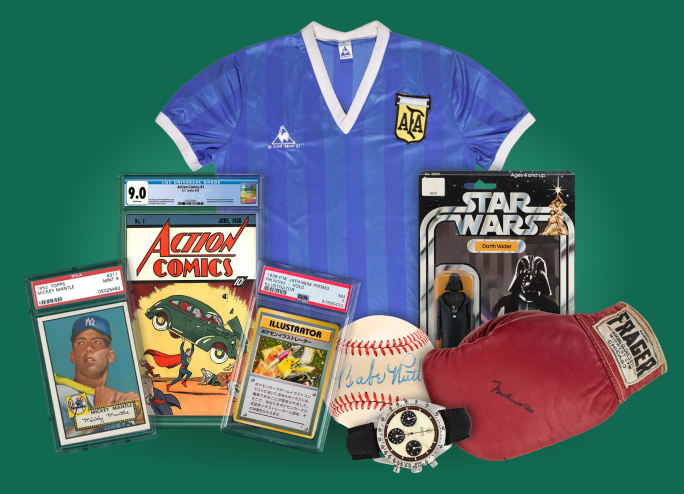
Create an account to discover more interesting stories about collectibles, and share your own with other collectors.




